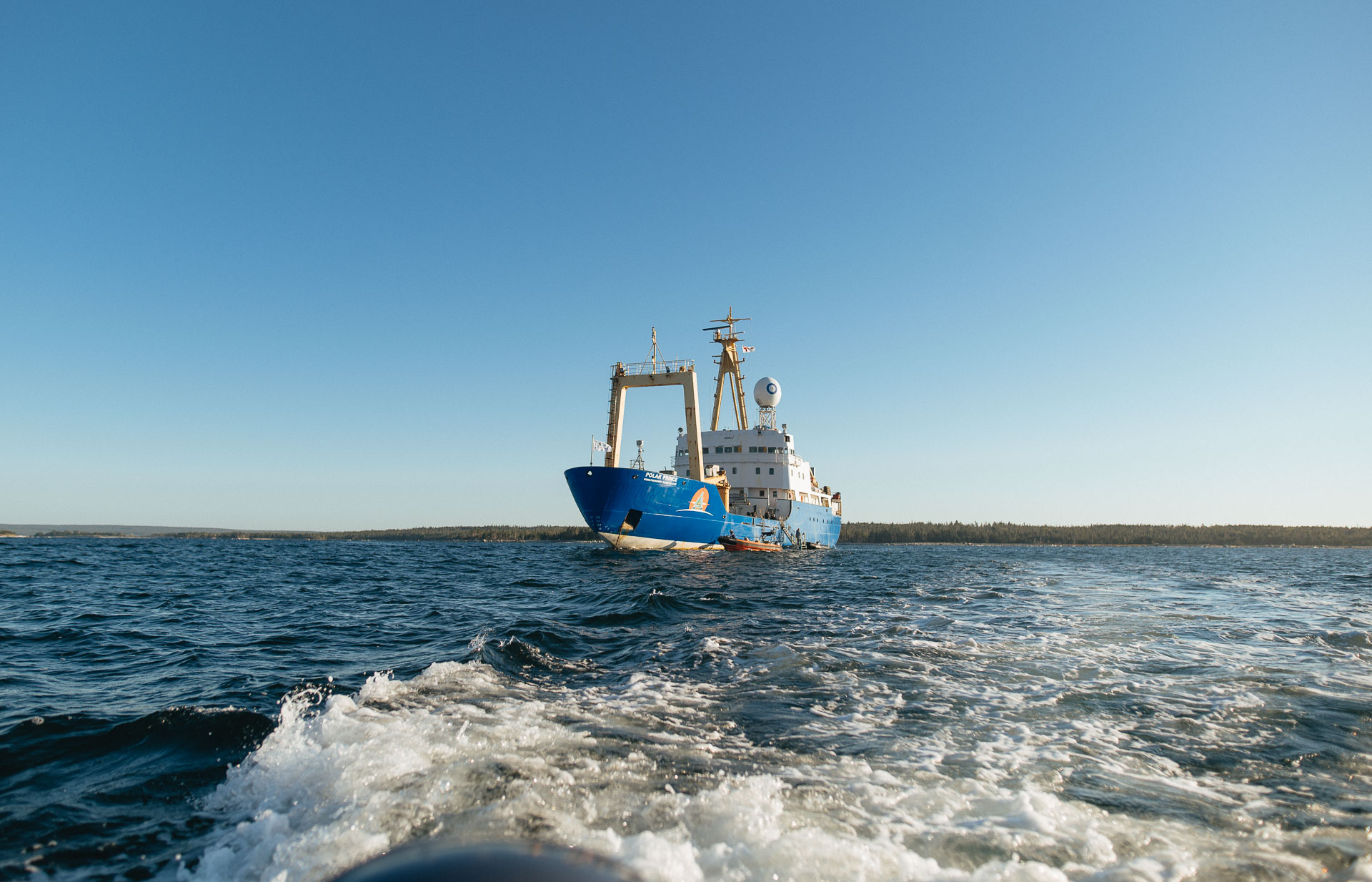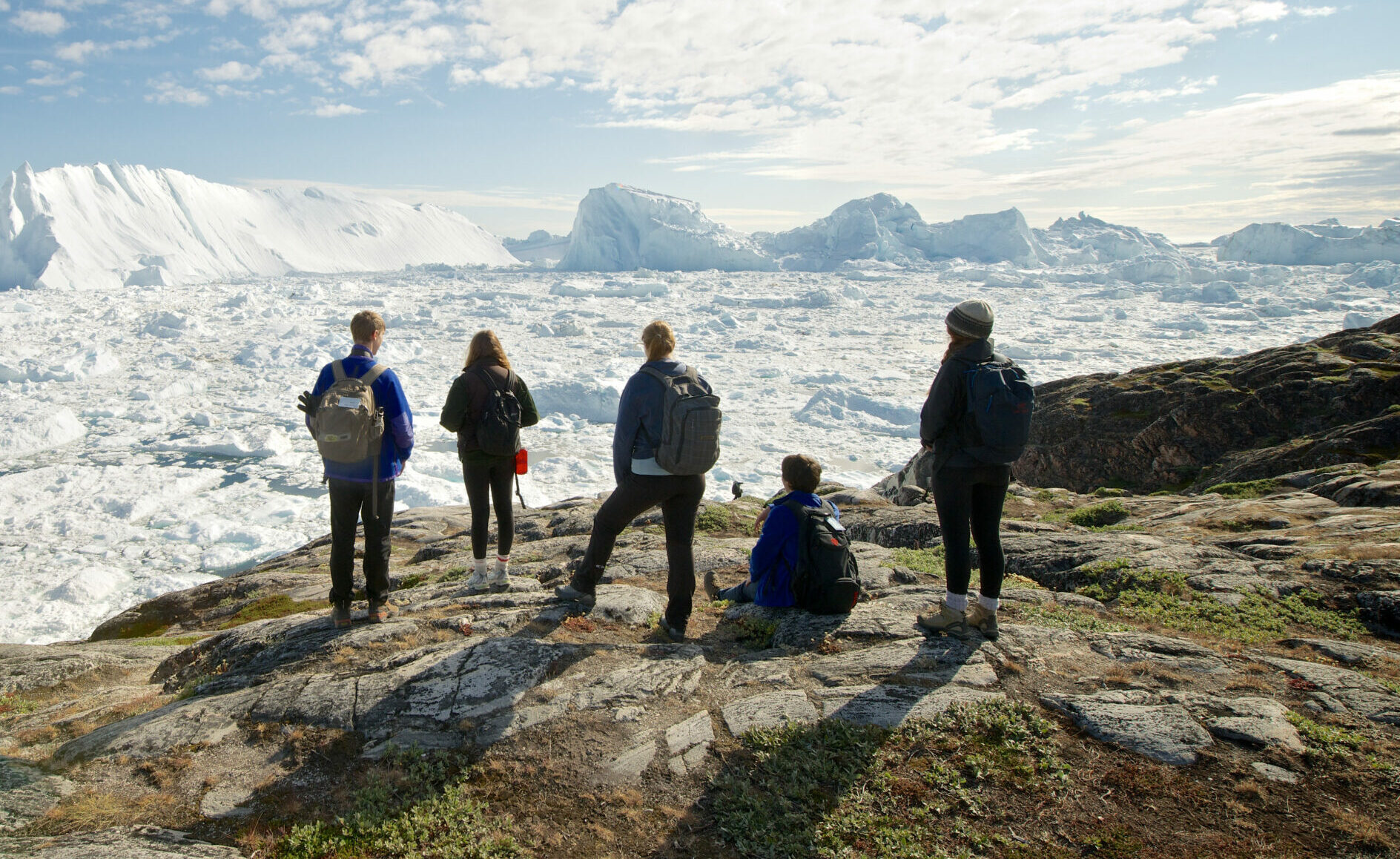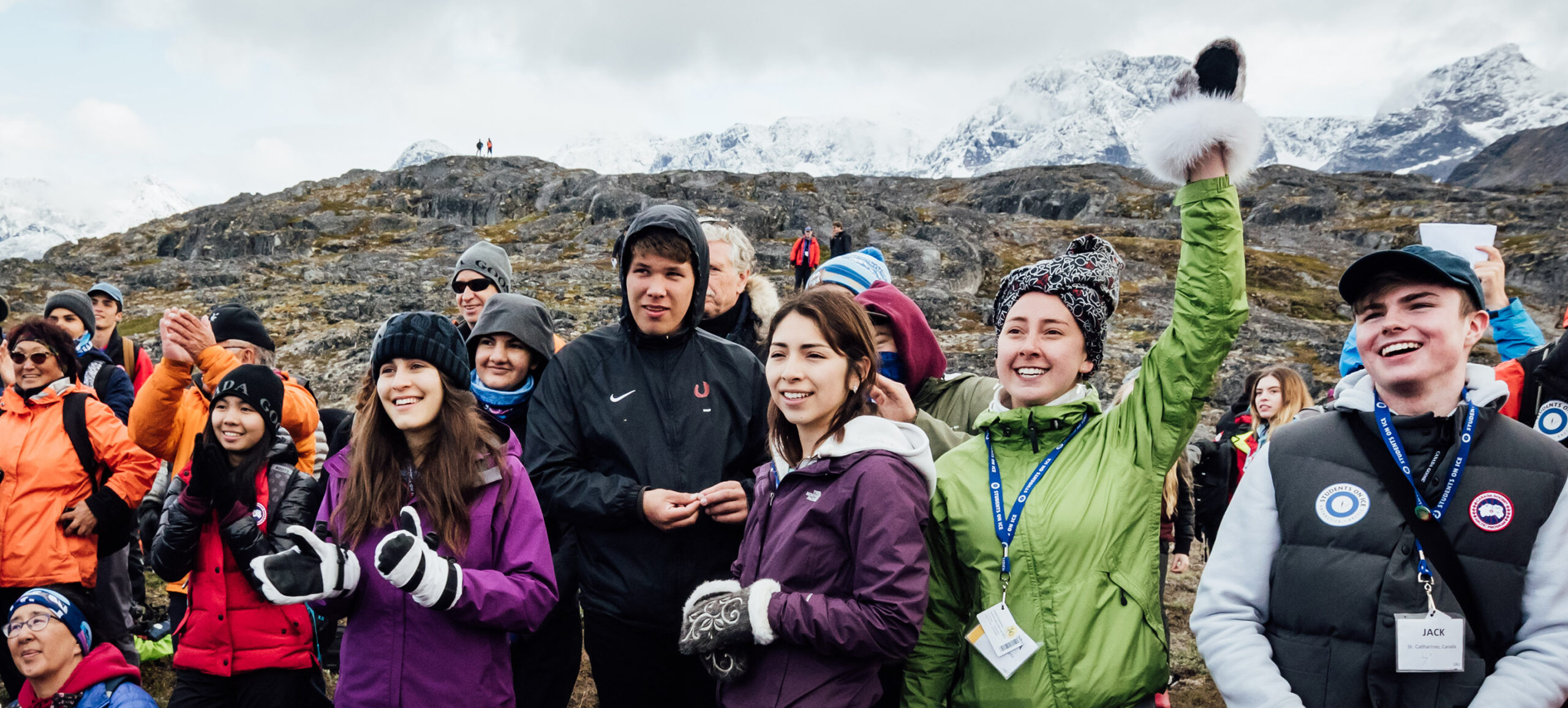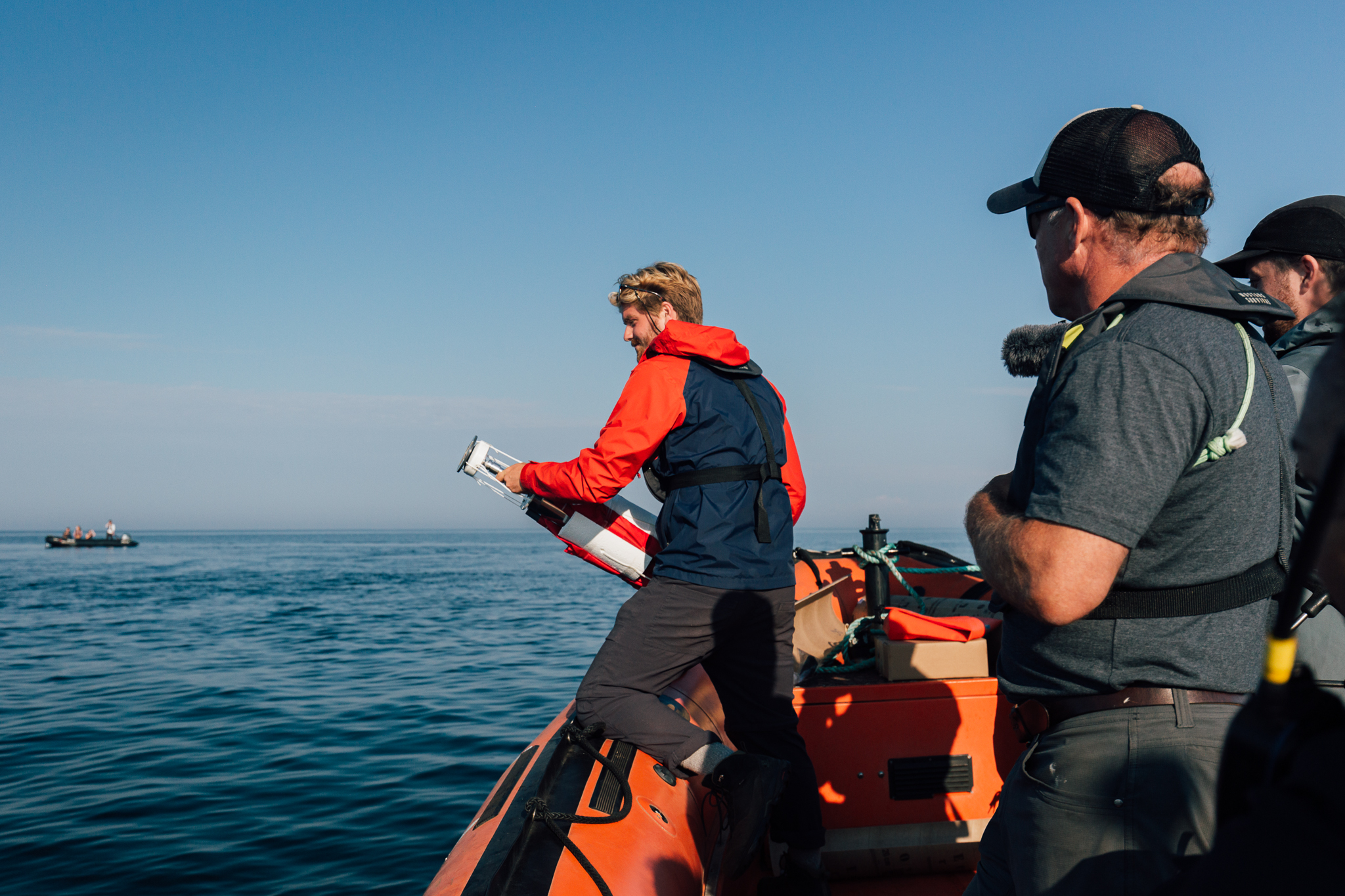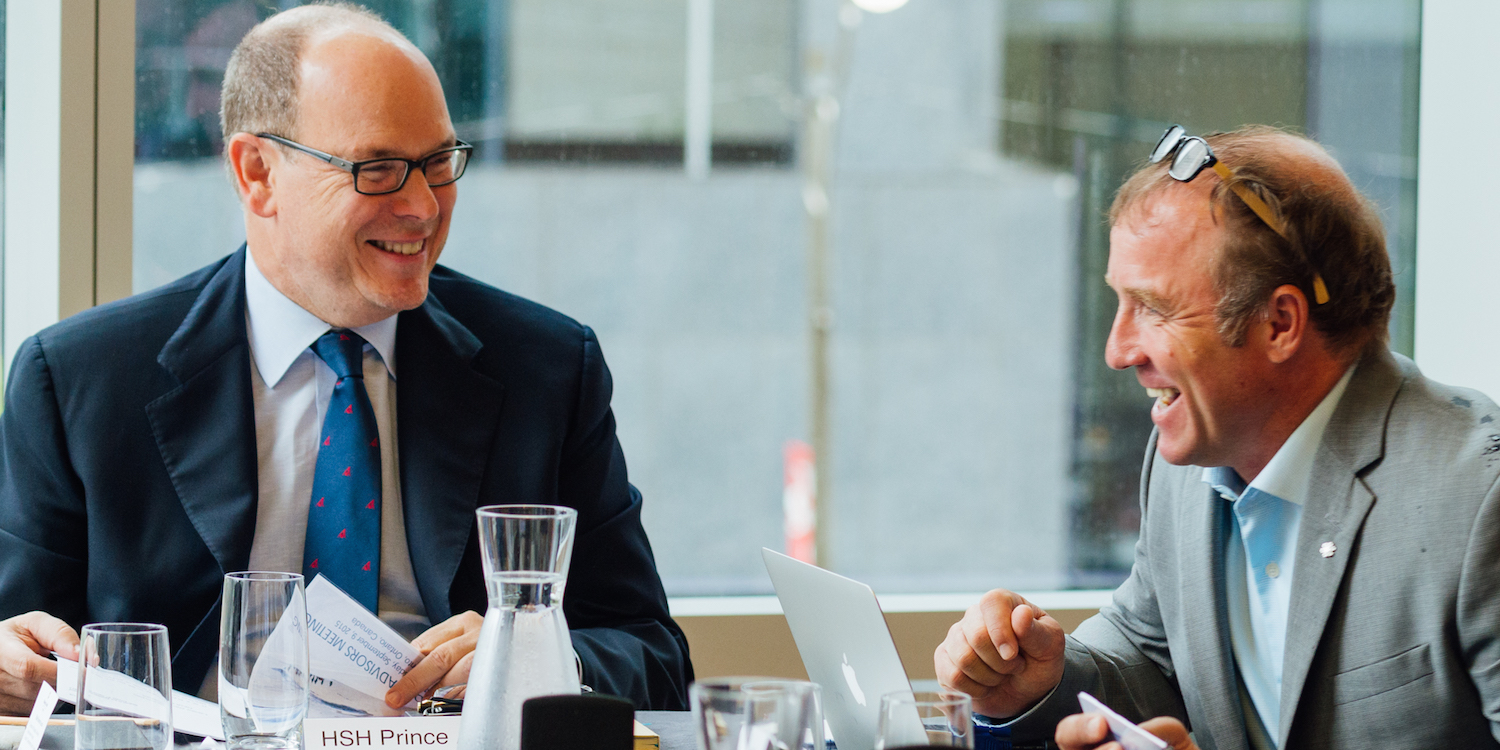Youth on Board: Alissa Sallans’ Internship at the Kluane Lake Research Station
 Meet Alissa Sallans. The Inuvik, NT-based student is in Ottawa for a few months, pursuing a master’s degree in environmental sustainability focusing on food systems in the North.
Meet Alissa Sallans. The Inuvik, NT-based student is in Ottawa for a few months, pursuing a master’s degree in environmental sustainability focusing on food systems in the North.
This past summer, Alissa completed an internship through Ocean Wise’s Direct Action Program, which connects youth with internships to learn about aquatic conservation work across Canada. Her internship was at the Kluane Lake Research Station (KLRS) in Yukon, operated by the University of Calgary’s Arctic Institute of North America.
Alissa’s internship was under the supervision and mentorship of Kristina Miller, a PhD Candidate in Geography at the University of Calgary, AB and a former Blue Futures Pathways regional coordinator. Kristina’s work focuses on the impacts of climate change on water availability in the Lhù’ààn Mân (Southern Tutchone for Kluane Lake) watershed.
“I wanted to learn more about the interconnections between water and the topics I am passionate about. I care a lot about climate change and food systems, for instance, and water is so central to both,” she said.
During her internship, Alissa worked on a mapping project to help identify where groundwater was coming from around the research station, and delivered a groundwater education module for visiting students.
She also helped with creek flow measurements and monitoring of the water that feeds into Lhù’ààn Mân. The data collected will help Kristina understand how the water input pathways to the lake are changing and how that impacts the lake’s depth.
For a long time, the lake was fed by the ’A’ą̈y Chù’, (Slims River in Southern Tutchone), which was made up primarily of meltwater from the Kaskawulsh Glacier. However, due to climate change, the retreating glacier caused the river flow volume to decrease significantly, which led to the lake’s water level dropping by about two metres.
These changes are affecting surrounding communities. The river’s exposed sediment causes dust storms. When Alissa first experienced it, she thought it was smoke.
“You couldn’t see the mountains, and I thought this was crazy, but it happens a lot,” she said, adding that researchers at KLRS are looking into the composition of the dust transported from the valley.
The changes also affect communities that rely on fishing, as reports show a recorded decline in the number of chum salmon that are spawning in the lake.
Alissa said the interconnections within the environment and among scientific disciplines are something she’s learned through the internship. This echoed her takeaways from the 2014 SOI Foundation expedition to Antarctica that she participated in.
“In high school, I was solely focused on climate action and that was all I cared about. But my SOI expedition made me realize that we can’t think about climate change without thinking about ecosystems, we can’t think about ecosystems without thinking about water, we can’t think about water without thinking about glaciers, and so on and so forth” she explained.
Passionate about community building and food systems, Alissa says being based in Inuvik has shown her the intrinsic value of living-off-the-land from a cultural, economic, and environmental perspective.
“As climate change impacts the movement and abundance of species, it’s going to resultantly impact food sustainability, especially in the North,” she said. “When we think about environmental sustainability, we need to also be thinking about food and water…this internship made me realize that it’s important to understand where water comes from in order to protect and conserve it.”
The internship also exposed Alissa to more career paths than she’d ever considered. She said, building her network through casual chats with the researchers who came into the KLRS and learning about their work showed her “new ways of thinking.”
“Talking to people in fields that you’re interested to work in and asking how you can learn from them, to me that’s been a really big part of my learning journey,” she said.
